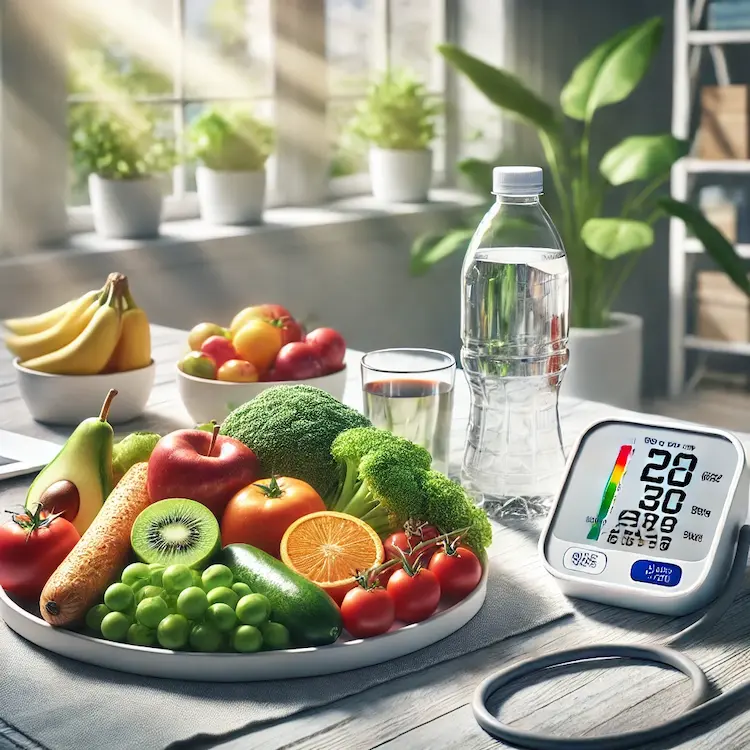High blood pressure, or hypertension, is often called the “silent killer” due to its lack of noticeable symptoms. When left untreated, it can significantly damage the heart, brain, kidneys, and other vital organs. Understanding the risks of untreated high blood pressure is essential for preventing long-term health complications and improving quality of life.
In this article, we’ll explore the effects of untreated high blood pressure, its societal impacts, the available methods for managing it, and offer actionable advice for those at risk.
High blood pressure occurs when the force of the blood against the walls of the arteries is consistently too high. It is measured using two numbers:
A normal blood pressure reading is usually below 120/80 mmHg. A reading of 130/80 mmHg or higher is considered high.

High blood pressure can cause severe damage to the cardiovascular system, leading to:
Key Fact: According to the American Heart Association, nearly 50% of Americans have high blood pressure, and only about 1 in 4 people have it under control.
The kidneys are particularly vulnerable to high blood pressure. Over time, untreated hypertension can damage the blood vessels in the kidneys, reducing their ability to filter waste from the blood. This can lead to kidney disease or even kidney failure.
High blood pressure can also damage the blood vessels in the eyes, leading to conditions like:
The financial burden of untreated high blood pressure is staggering. As people develop complications like heart disease, stroke, and kidney failure, the costs associated with hospitalizations, treatments, and long-term care skyrocket. The CDC estimates that high blood pressure costs the United States $131 billion each year in healthcare services, medications, and lost productivity.
Untreated high blood pressure affects not only physical health but also mental well-being. Individuals living with high blood pressure may experience fatigue, headaches, and cognitive difficulties. This can limit their ability to work, exercise, or engage in social activities.
There are various classes of medication prescribed to lower blood pressure:
Each medication has its benefits, side effects, and specific use cases. Consulting a healthcare provider is essential to find the best option.
Making positive lifestyle changes can significantly reduce blood pressure and may even eliminate the need for medication. Key changes include:

Tip: A study published by the Journal of Hypertension showed that regular aerobic exercise can reduce systolic blood pressure by 5-10 mmHg.
The most effective way to detect high blood pressure early is through regular monitoring. This is particularly important for individuals with a family history of hypertension or other risk factors such as obesity, smoking, or a sedentary lifestyle.
Key Fact: The American Heart Association recommends having your blood pressure checked at least once every two years, or more frequently if you’re at higher risk.
Chronic stress is a significant factor in the development of high blood pressure. Practices such as yoga, meditation, deep breathing exercises, and mindfulness can help manage stress levels and prevent hypertension.
Both medication and lifestyle changes are essential in managing high blood pressure. However, lifestyle changes should always be the first line of defense. Medication may be needed when lifestyle changes alone are not enough to control blood pressure.
| Treatment Option | Pros | Cons |
|---|---|---|
| Medications | Effective for quick results, necessary in some cases | Potential side effects, long-term use required |
| Lifestyle Changes | Long-term benefits, no side effects | Requires consistent effort and patience |
In addition to medical treatment and lifestyle changes, some individuals may seek natural remedies, such as:
Untreated high blood pressure is a major risk factor for several serious health conditions, including heart disease, stroke, and kidney failure. The societal and economic impacts are profound, with healthcare costs rising annually. However, managing high blood pressure is possible through a combination of medication, lifestyle changes, and regular monitoring.
Actionable Recommendations
By taking proactive steps, you can greatly reduce the risks associated with high blood pressure and improve your overall health.